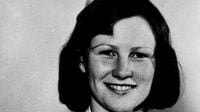On a warm May evening in 1979, 23-year-old British nurse Helen Smith attended a clandestine party in Jeddah, Saudi Arabia, a gathering that would mark the beginning of a decades-long mystery and a landmark legal battle. The nurse, who had moved from Yorkshire to Saudi Arabia just a year earlier seeking a fresh start and financial stability, was found dead alongside Dutch tugboat captain Johannes Otten after allegedly falling from a sixth-floor balcony. Officially declared an accident by Saudi authorities, the circumstances surrounding their deaths have since been shrouded in suspicion, controversy, and calls for justice.
Helen Smith’s story is one of youthful ambition cut tragically short. Born and raised in the Leeds suburb of Guiseley, she was the eldest of four siblings. In 1978, she ventured to Jeddah for a nursing post, embracing the new life and opportunities the Middle East offered. Letters to her family painted a picture of contentment and financial reward. Yet, barely a year later, her parents received the devastating news: Helen had died. The official explanation was that she and Johannes Otten had fallen from a balcony while intoxicated, possibly during or after a sexual encounter at a party hosted by surgeon Richard Arnot and his wife Penny.
The party itself was illicit, with alcohol consumed in a country where it was strictly forbidden. Alongside Helen and Johannes, guests included a New Zealand diver, a French marine biologist, German salvage operators, and others. According to reports, Helen and Johannes left the party to the balcony late at night, never to be seen alive again. The following morning, Helen’s body was found lying on the road, fully clothed but with underwear partly removed, while Johannes was discovered impaled on spiked railings nearby.
Initial investigations by Saudi authorities quickly ruled the deaths accidental, but inconsistencies soon emerged. Post-mortem examinations revealed Helen had internal injuries inconsistent with a simple fall. Bruising on her head and thighs suggested possible assault. Her body was found beneath an architectural overhang, which did not align with a straightforward fall from the balcony. These troubling details fueled doubts, particularly from her father, Ron Smith, a former police officer who refused to accept the official narrative.
Ron Smith’s relentless quest for truth transformed the case from a tragic accident into a landmark legal battle. Just four days after Helen’s death, he traveled to Jeddah to investigate personally. His persistence led to Helen’s body being repatriated to the UK, where it remained in the Leeds General Infirmary morgue for over 30 years—a record length of time before burial. Over the years, six post-mortems and numerous forensic examinations took place, some suggesting Helen may have been sexually assaulted before her death.
Initially, the West Yorkshire Coroner declined to hold an inquest, citing jurisdictional limitations. However, with the help of lawyer Ruth Bundey, Ron successfully appealed. In 1982, the Court of Appeal ordered an inquest, setting a legal precedent requiring coroners in England and Wales to investigate deaths abroad when the body is repatriated and the death appears violent, unnatural, or unexplained. This change, later enshrined in the Coroners and Justice Act 2009, has since provided families of British citizens who die overseas with a vital legal avenue for investigation.
The inquest itself was inconclusive, with the jury delivering an open verdict rather than the accidental death verdict the coroner had directed. This left many questions unanswered, and Ron continued his campaign for justice until his death in 2011. Helen’s body was finally cremated in 2009, and her ashes scattered at Ilkley Moor, honoring her family’s wishes.
New light has been shed on the case by the Channel 4 documentary Death In The Desert: The Nurse Helen Mystery, which premiered on June 23, 2025. Directed by Keely Winstone, the 90-minute film draws on hundreds of newly declassified government documents obtained through Freedom of Information requests, fresh interviews, and expert analysis. These files reveal that senior British officials, including the Director of Public Prosecutions, harbored strong suspicions of foul play but were constrained by political considerations.
The documentary highlights the delicate geopolitical context of the time. Margaret Thatcher’s government, newly in power, was deeply invested in maintaining favorable relations with Saudi Arabia, a key oil supplier and arms customer. Officials feared that challenging the Saudi narrative could disrupt oil prices, exacerbate inflation, and jeopardize lucrative contracts. This led to a tacit cover-up, with the Foreign Office seemingly content for the case to fade away quietly.
Barrister Geoffrey Robertson, featured in the documentary, commented: “It’s quite clear from these papers you’ve discovered that it suited the Foreign Office for this to go away.” The film also exposes cultural clashes and diplomatic pressures that complicated the pursuit of justice, underscoring the human cost of unanswered questions.
Critics have praised the documentary for its investigative depth and compelling storytelling. According to journalist Roland White, the film “makes a convincing case that they were both murdered,” pointing out that the injuries Helen sustained were inconsistent with a 70-foot fall and that no witnesses reported seeing the couple fall during the party. A Home Office pathologist’s second post-mortem concluded Helen had probably been raped and beaten.
Despite these revelations, the documentary stops short of definitively naming a perpetrator, inviting viewers to weigh the evidence and draw their own conclusions. It also revisits the wider ramifications of the case, including how it reshaped UK law and highlighted the challenges families face when seeking justice for loved ones who die abroad under suspicious circumstances.
Helen Smith’s tragic death remains officially classified as accidental, but the documentary’s revelations and Ron Smith’s tireless campaign have ensured her story continues to resonate. The case stands as a stark reminder of the intersection between personal tragedy, international diplomacy, and the pursuit of justice.
As the documentary airs and sparks renewed interest, it invites reflection on how far legal protections for British citizens abroad have come—and how much further they must go to ensure that no family faces such uncertainty again.






